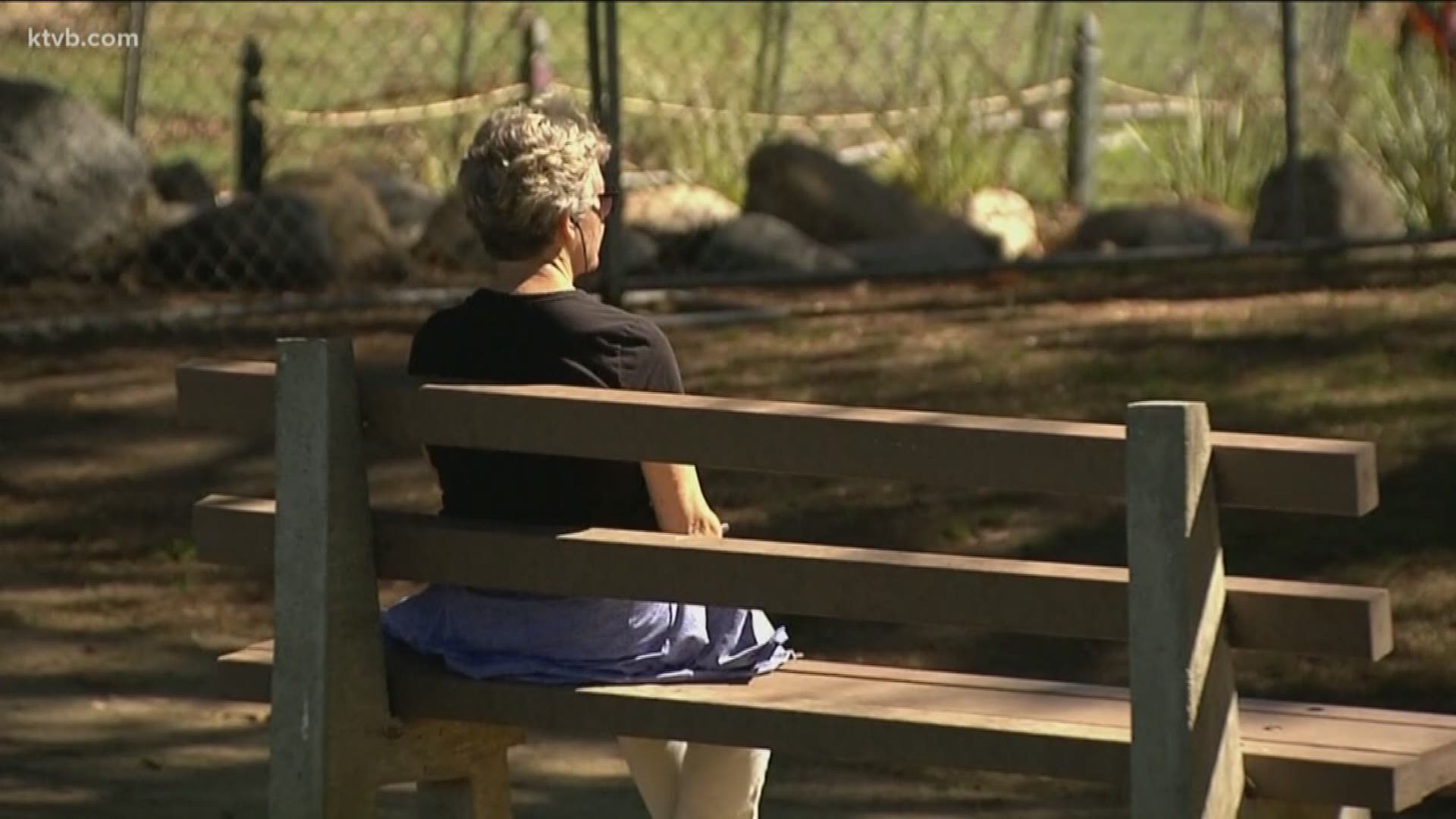BOISE, Idaho — The worldwide COVID-19, or coronavirus, pandemic is taking its toll on people's health - both mentally and physically.
Behavioral health professionals are urging citizens not to let their mental health and well-being go unchecked during the current global crisis.
Cottonwood Creek Behavioral Hospital in Meridian is still accepting patients and admissions amid the coronavirus outbreak and is a resource for those who need help.
It is taking extra precautions to keep patients who need to come to the hospital for treatment safe from the virus and other illnesses.
“We’re screening all of our patients and all of our staff daily," said Lynda Onyshko, admissions specialist at Cottonwood Creek. "We have things like disinfecting, making sure things are clean and wiped down, we’re doing fever screenings.”
Anyone who has recently been out of the country, or shows any signs of illness such as cough or fever, will be asked to first seek medical attention before being allowed into the Cottonwood Creek facility.
Onyshko said they want to help the community as much as they can while keeping staff and patients as safe as possible.
Dr. Tamara Helfer, a psychiatrist at Cottonwood Creek, says when it comes to mental health, springtime is already a challenge for many, as it often brings a lot of changes in people's lives, which can take a mental toll.
Because of that, the hospital typically sees an uptick in patient admissions during the spring months. Suicide rates nationwide also typically rise during the same time frame, Helfer said.
Idaho coronavirus info:
Map of confirmed Idaho cases | COVID-19 resources | Testing sites| School closings | Building, venue and event closings | Full COVID-19 coverage
The current COVID-19 outbreak can mentally-burden even those who previously had no other mental health concerns.
“I think it’s normal to feel anxious during this time, I’m feeling anxious during this time – I think that’s a normal feeling,” Helfer said. "But at the same time we don’t want it to be getting out of control.
“There’s just a lot on everyone’s plate, there’s a lot on people’s shoulders, there’s a lot of what-ifs and unknowns and that’s really hard for a lot of people," she added.
The pandemic can also take its toll on children.
“So many kids are struggling right now," Helfer said. "They don’t understand what’s happening. Really making sure you’re there for them and letting them just talk [is important for parents].”
While stress and anxiety can be common during an event like the coronavirus outbreak, Helfer said there are some things people can do to try and keep their spirits up.
“I think it’s still so important to try to be social in ways that are safe," she said. "Telephone, Facetime, even text messages. Whatever it is, just to have some connection with people.”
Helfer also suggests taking a break from social media.
“I’m personally trying to tell people don’t be on social media too much," she said. “I think people are really starting to get addicted to it where it’s becoming overwhelming for people.”
So how do you know when you should seek professional help if you're struggling mentally?
Some red flags to watch for in both adults and children include suicidal thoughts, lack of motivation or interest, feelings of worthlessness or hopelessness, and an effect on day-to-day life.
“Isolation. Their depression has gotten to a place where they’re no longer taking care of their daily living," Onyshko said. "They’re not showering, they’re not brushing their teeth, getting out of bed. It could be they are just not able to function in a normal day-to-day work routine or at school.”
Those are the types of criteria Cottonwood Creek looks to determine if a patient should be admitted.
The hospital has a 24-7 line people can call to ask whether they should be seen by a health professional - and where they should go. That number is 208-202-4701. Onyshko said they can refer anyone who calls that number to the proper resource to get the help they need.
Helfer tells KTVB that another resource Cottonwood, and many other health professionals, are offering during the pandemic is telehealth or phone sessions. That way therapists are still able to communicate with, and help, patients.
“We don’t want people at home suffering and potentially going to do something harmful," Helfer said. "If you’re really at that point, we want you to come in. We want to be able to help.”
There are also websites, such as the National Alliance for Mental Illness, that are available with information and additional resources for anyone struggling with mental health.
If you or someone you know is in crisis, help is available. Please reach out to the Idaho Suicide Prevention Hotline, either by calling 2-1-1 and pressing 2 or by directly calling or texting the Idaho Suicide Prevention Hotline at 208-398-4357.
All calls are anonymous and confidential.
Facts not fear: More on coronavirus
See our latest updates in our YouTube playlist:

